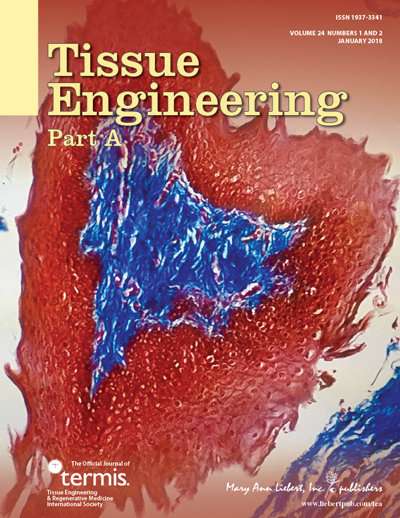Credit: Mary Ann Liebert, Inc., publishers
A new study describes novel probes that enable non-invasive, non-destructive, direct monitoring of the differentiation of mesenchymal stem cells (MSCs) in real-time during the formation of engineered cartilage to replace damaged or diseased tissue. These molecular probes make it possible to assess the quality of the cartilaginous tissue and its suitability for implantation as it is forming, and to make modifications to enhance the multi-step process of MSC differentiation into chondrocytes "on the go," as described in a study published in Tissue Engineering, Part A.
Coauthors Diego Correa, MD, PhD, Case Western Reserve University (Cleveland, OH) and University of Miami, Miller School of Medicine (FL), and Rodrigo Somoza, PhD and Arnold Caplan, PhD, Case Western Reserve University report the significant advantages of these new molecular probes for improving the design and fabrication of engineered cartilage in the article entitled "Nondestructive/Noninvasive Imaging Evaluation of Cellular Differentiation Progression During In Vitro Mesenchymal Stem Cell-Derived Chondrogenesis." The researchers describe how they used promoters of well-established biomarkers of MSC differentiation to form chondrocytes (the cells that comprise cartilage) to develop the probes, and how the probes can be used to assess chondrogenesis in the laboratory as well as the differentiation of bone cells (osteogenesis) in the body.
Research reported in this publication was supported by the National Institutes of Health under Award Numbers1R01EB020367 and 1P41EB021911. The content is solely the responsibility of the authors and does not necessarily represent the official views of the National Institutes of Health.
More information: Diego Correa et al, Nondestructive/Noninvasive Imaging Evaluation of Cellular Differentiation Progression During In Vitro Mesenchymal Stem Cell-Derived Chondrogenesis, Tissue Engineering Part A (2017). DOI: 10.1089/ten.tea.2017.0125
Provided by Mary Ann Liebert, Inc























